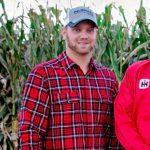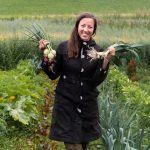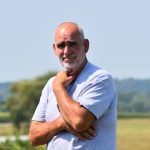Speakers
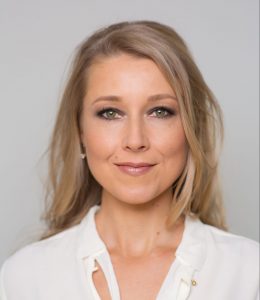 Sarah Smarsh is an author, speaker and journalist who focuses on socioeconomic class and rural America. Her book, “Heartland: A Memoir of Working Hard and Being Broke in the Richest Country on Earth,” examines economic inequality through her upbringing among the working poor on a Kansas farm and was a New York Times bestseller and finalist for the National Book Award.
Sarah Smarsh is an author, speaker and journalist who focuses on socioeconomic class and rural America. Her book, “Heartland: A Memoir of Working Hard and Being Broke in the Richest Country on Earth,” examines economic inequality through her upbringing among the working poor on a Kansas farm and was a New York Times bestseller and finalist for the National Book Award.
Sarah has written for numerous publications, including The Guardian, The New York Times, The New Yorker, Harper’s and many others. She is also a regular commentator in national media and has spoken internationally on poverty, rural issues and cultural divides at venues ranging from small-town libraries to the Sydney Opera House. A former English professor and grant writer for social service agencies, Sarah aims for all of her work to have a backbone of civic responsibility.
Other Speakers
Conner Allender
Conner Allender is a senior at Greene County High School in Jefferson, Iowa. She has participated in and holds officer positions in both 4-H and National FFA Organization. In spring 2019, Conner and her neighbor, Tom Wind, started a pasture poultry operation on Tom’s farm to help build better soil content in his pastures.
Lead The Way: An Independent Farm Project Virtual Show-and-Tell (Ages 12-16)
Bronson Allred
Bronson farms corn and soybeans – and occasionally small grains – near Corydon, Iowa. Bronson is an avid cover cropper and is looking at ways to integrate livestock into his operation. Bronson has been engaged in the PFI community since participating in the PFI cover-crop cost-share program in 2018.
Getting Creative in Order to Integrate Crops and Cattle
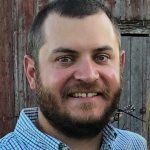 Alec Amundson
Alec Amundson
Alec operates Green Country Farms in Mitchell County, Iowa, where he raises corn, soybeans and rye. The Amundsons use cover crops, no-till and have been relay cropping since 2018.
Relay-cropping Rye and Soybeans
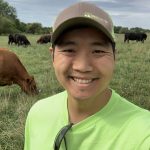 Caleb Baker
Caleb Baker
Caleb Baker is a beginning farmer in Ringgold County, Iowa, who is transitioning from farming conventional row crops and feedlot cattle to developing perennial pastures and grass finishing. Caleb is interested in developing an internet marketing platform for grass-finished beef raised by graziers in southwest Iowa.
Developing a Pasture-Raised, Iowa-Based Meat Company
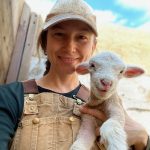 Hannah Bernhardt
Hannah Bernhardt
Hannah and her husband, Jason, tend the 160 acres of Medicine Creek Farm in northeastern Minnesota. Their regenerative family farm sells 100% grass-fed lamb and beef, organically fed pastured pork and livestock guardian dog puppies.
Start Shepherding from Scratch
Rebekka Bond
Rebekka began studying and working on REKO rings in Sweden in 2017 while working for the Norwegian Farmers and Smallholders Union. She now lives in Sørum, near Oslo, where she farms organic vegetables at Såkroken Organic Garden and is the administrator for the Lillestrøm REKO ring.
REKO Rings: A Direct-Market Model from Scandinavia
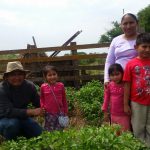 Justino Borja
Justino Borja
Justino was raised on a farm in Mexico that grew corn, pumpkins, sorghum and beans. He has leased half an acre from Virgil for the past three years and cultivates tomatoes and jalapeño, serrano and bell peppers. Justino’s hope is to own land and diversify his farm by adding strawberries, goats and more vegetables.
Justino creció en una granja en México que cultivaba maíz, calabazas, sorgo y frijoles. Ahora alquila medio acre durante los últimos tres años cultivando tomates, jalapeños, serranos y pimientos morrones. La esperanza de Justino es poseer tierras y diversificar su granja agregando fresas, cabras y más verduras.
Johnathan Buffalo
Johnathan is the historic preservation director for the Meskwaki Nation. He is a husband, father and grandfather who has lived all his life on the Meskwaki settlement near Tama, Iowa.
Iowa’s Diverse Farming History – Sac and Fox Tribe
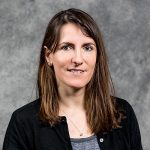 Melanie Caffe
Melanie Caffe
Melanie is an associate professor at South Dakota State University. She leads the oat breeding program and has participated in the development and release of varieties “Hayden,” “Natty,” “Sumo,” “Saddle,” “Warrior” and “Rushmore.”
Choosing the Right Oat Varieties – Breeding to Buying
Bruce Carney
Bruce is a lifetime PFI member who, with his wife Connie, owns and operates Carney Family Farms near Maxwell, Iowa. Located on 300 acres of pasture that once grew corn and soybeans, Bruce has made use of NRCS working lands programs to fund conservation activities and improve his operation.
Working Lands Conservation Programs Tips & Tricks
 Celize Christy
Celize Christy
Celize is the next generation coordinator for Practical Farmers of Iowa. Celize focuses on working with aspiring farmers through the Labor4Learning program, Find A Farmer site and Latino Outreach project.
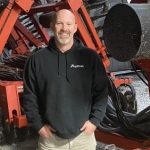 Ryan Corrie
Ryan Corrie
Ryan raises corn and soybeans on his farm in Schuyler County, Illinois. Ryan has used cover crops to improve soil health since 2013.
Two for One: Cover Crop Seeding Equipment to Save Passes
 Omar de Kok-Mercado
Omar de Kok-Mercado
Omar is the STRIPS project coordinator with ISU. Omar coordinates transdisciplinary research and extension activities on prairie strips and their impacts on farmland, farm livelihoods, soil, water and wildlife conservation.
Conceptualizing Large-Scale Livestock and Perennial Plant Integration
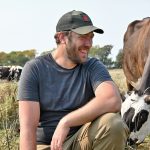 Kevin Dietzel
Kevin Dietzel
Kevin owns and operates Lost Lake Farm along with his wife, Ranae, in Jewell, Iowa, where they launched a small, grass-fed cow dairy that produces artisanal cheese in 2016. The farm includes 80 acres of pasture and hay; whey-fed hogs; and the cattle are rotated through the pastures twice daily.
F2F: Kevin Dietzel & Lois Reichert
Jasmine Dillon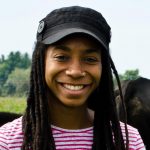
Jasmine is an Assistant Professor in the Department of Animal Sciences at Colorado State University. Jasmine explores carbon and nutrient cycling and how it relates to farm management, profitability and sustainability. She also studies the social impact and role of livestock in our food system.
Joshua Divan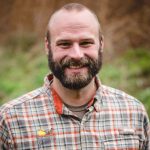
Josh is the Iowa precision ag and conservation specialist for Pheasants Forever. Raised on a farm in Winnebago County, Iowa, Josh collaborates with producers, retailers, crop advisors, lenders and others to implement precision conservation and help farmers be profitable and successful.
Using Precision Ag to Find Opportunities for Wildlife Habitat
Wade Dooley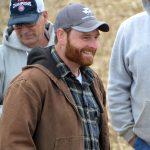
Wade is a sixth generation farmer in Marshall County, Iowa, who operates Glenwood Century Farm, a diversified crop and livestock operation focusing on raising cover crop seed. Wade also owns Dooley Ag Stewardship Inc., offering custom cover crop seeding services and seed.
F2F: Wade Dooley and James Holz
Mike Downey
Mike is an accredited farm manager, accredited land consultant and certified farm succession coordinator with Next Gen Ag Advocates. Mike grew up on a farm in west-central Illinois, and uses his expertise and experience to help farmers and landowners navigate farm succession and management issues.
Rethinking Farmland Leasing: Payment Structures and Conservation Provisions
Sara and Jess Ecker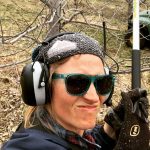
Sara and Jess are the orchard and marketing managers at Ecker’s Apple Farm, where they work alongside their mother, Mary, in the heart of the Driftless Region near Trempealeu, Wisconsin. In addition to stewarding 35 acres of apples, peaches and blueberries, the orchard is diversifying with new enterprises including a bake shop, orchard market, outdoor event spaces and a local beer garden, Hog’s Back Brew Farm.
A Fresh Vision for Ecker’s Apple Farm
Mac Ehrhardt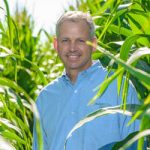
Mac is president of Albert Lea Seed, located in southern Minnesota. Albert Lea Seed is a third-generation family business that sells organic and non-GMO seed throughout the upper Midwest.
Choosing the Right Oat Varieties – Breeding to Buying
 Elizabeth Findling
Elizabeth Findling
Elizabeth Findling is from Royal, Iowa, in the northwest part of the state. She is currently a sophomore at Spencer Highs School. When she is not hitting the ball on the softball diamond, you can find her working on her livestock projects. Recently, Elizabeth and her sister have started raising their own flock of chickens.
Lead The Way: An Independent Farm Project Virtual Show-and-Tell (Ages 12-16)
 Rachel Findling
Rachel Findling
Rachel Findling is from the small town of Royal, Iowa. She grew up working with various species of livestock, such as cattle, sheep, pigs and chickens. She joined 4-H and the National FFA Organization right away. Through these opportunities, Rachel was inspired to pursue a career in becoming an agricultural educator.
Lead The Way: An Independent Farm Project Virtual Show-and-Tell (Ages 12-16)
Sarah Foltz Jordan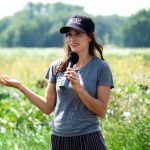
Sarah is a senior pollinator conservation specialist with the Xerces Society. Based in Minnesota, Sarah leads Xerces’ Upper Midwest native bee and monarch habitat restoration projects, working closely with farmers, agencies and partner organizations to promote pollinators on farms and in natural areas.
Making Space for Beneficial Insects on Farms
Regina Frahm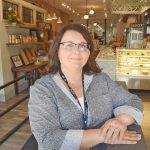
Regina owns and operates Esther Purl Fibers, raising registered white Cormo breeding stock and colored Cormo sheep. She recently opened Esther & Company, her modern-day mercantile featuring local fibers and foods. Together with her family, Regina helps run Frahm Farms in Newton, Iowa, raising sheep, beef cattle, corn, soybeans and hay.
Raising Sheep for Wool – Building Community Around Wool
Sue Futrell
For over 40 years, Susan has been involved in food and sustainable agriculture in Iowa and nationally, working in distribution, sales and marketing. She is the author of “Good Apples – Behind Every Bite,” a non-fiction introspective about commercial apple production. She is also director of marketing for Red Tomato, a nonprofit working with fruit and vegetable growers and regional food systems.
Reframing Food and Farming Narratives
Melissa Garcia
Melissa is the state monitor advocate for Iowa. She works with a team across the state to supply migrant and seasonal farm workers with information about available employment. She also works with agricultural employers in all stages of the hiring process to fill their seasonal workforce needs.
Migrant and Seasonal Farmworkers: Worker Rights and Experiences
Jacob Grace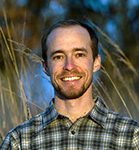
Jacob works on grazing and communications projects for the Savanna Institute, a nonprofit supporting agroforestry expansion in the Midwest. He also works with University of Wisconsin-Madison’s Center for Integrated Agricultural Systems.
Diversifying Farms With Integrated Agroforestry
Jonathan Hendricks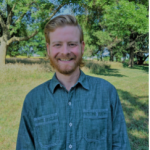
Jonathan serves as the new agroforestry specialist with Sustainable Iowa Land Trust. He is researching ways farmers can cash-flow a variety of agroforestry practices in the Midwest.
Diversifying Farms With Integrated Agroforestry
Chris Henning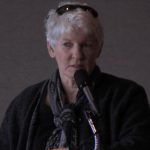
Chris is a landowner from Cooper, IA. Chris manages her family farm and works with her tenants on a variety of conservation practice, including no-till, cover crops, and buffer strips. Chris also has experience using conservation programs like EQIP and CRP.
Chad Hensley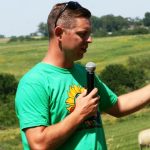
Chad and his wife, Katie, own and operate Big Creek Farms near Lamoni, Iowa. With a diversified fruit, vegetable and livestock operation, Chad has experience using working lands programs including EQIP and CSP to implement conservation programs and improve his bottom line.
Working Lands Conservation Programs Tips & Tricks
Scott Hoffman Black
Scott is an internationally renowned conservationist and the executive director of the Xerces Society for Invertebrate Conservation. Throughout his career, Scott has worked to protect and restore habitat on millions of acres, adapting conservation to local communities and local places.
Global Threats to Pollinators: Climate Change and Pesticides
John Hogeland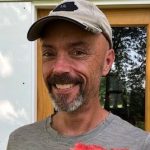
John moved back to Lovilia, Iowa, from California with his wife, Beth Hoffman, to take over the family farm. John and Beth are transitioning the 540 acres to an organic, grass-fed cattle operation. They use rotational grazing practices and plan to add goats to their system soon.
F2F: John Hogeland & Martha McFarland
Ty Holmberg
Ty is co-director at Sankofa Community Farm at Bartram’s Garden in Philadelphia. Ty has had extensive experience in youth development, food justice and education reform. He served for 10 years with the University of Pennsylvania’s Center for Community Partnerships as director of health promotion, and was director of the West Philadelphia-based Sayre Community School.
Community-Engaged Seed Keeping of the African Diaspora
James Holz
James Holz farms in Green County, Iowa, where he raises corn, soybeans, rye and cattle. In 2014, James co-founded Iowa Cover Crop, a full-service cover crop business.
F2F: Wade Dooley and James Holz
Chad Ingels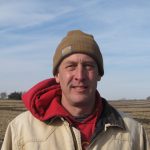
Chad farms in Fayette County, Iowa, with his wife and three children. Chad raises corn, soybeans, oats and hogs on 600 acres, and he operates ClearWater Ag Strategies, LLC, which helps farmers with manure management.
Choosing the Right Oat Varieties – Breeding to Buying
Adam Janke
Adam is an assistant professor and wildlife extension specialist with ISU. Adam focuses on leveraging research and partnerships to improve knowledge and prospects of wildlife populations in agricultural working landscapes across the Midwest.
Conceptualizing Large-Scale Livestock and Perennial Plant Integration
Robert Jewell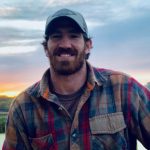
Robert is a fifth-generation farmer who works alongside his father on their century farm near Decorah, Iowa. The Jewells raise organic turkeys, beef cattle, pasture hogs and crops. He began grazing cover crops in 2018 after realizing the advantages of doing so from both an economic and soil health perspective.
Growing the Next Generation of Farmers Through Grazing Cover Crops
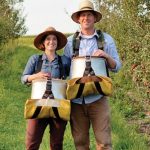 Emma Johnson
Emma Johnson
Emma and Marcus Johnson operate Buffalo Ridge Orchard near Central City, Iowa, with Emma’s parents, Mary and Vernon Zahradnik. The 80-acre farm includes 5 acres of diversified vegetables (field and high tunnel) and 13 acres of orchard. The farm is covered by a Whole Farm Revenue Protection policy.
Insuring Specialty Crop Production
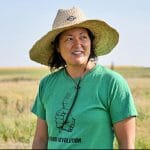 Wendy Johnson
Wendy Johnson
Wendy Johnson and Johnny Rafkin own Joia Food Farm, a regenerative, organic farm producing humanely-raised meat and eggs near Charles City, Iowa. Wendy is also PFI’s current board president.
Developing a Pasture-Raised, Iowa-Based Meat Company
Zak Kennedy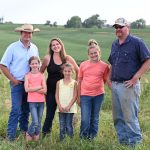
Zak and Emily Kennedy, along with Zak’s brother, Mitch, operate Kennedy Cattle Company in Atlantic, Iowa. As fourth-generation farmers, they take steps every year to improve their land and farming system through growing diversified crops and cover crops. The Kennedys graze or feed cover crops in all phases of cattle production.
Getting Creative in Order to Integrate Crops and Cattle
Lisa Kivirist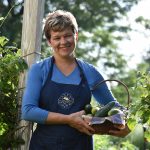
Lisa is the author of the award-winning book, Soil Sisters: A Toolkit for Women Farmers and co-author of multiple books on sustainability, food and entrepreneurship. For over twenty years, she and her family have run Inn Serendipity Farm and B&B in Wisconsin, completely powered by renewable energy.
Increase Income through Diversification
Eileen Kladivko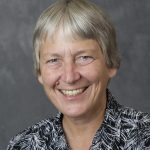
Eileen is a professor at Purdue University. Her research program centers on linking soil management with improved environmental quality and soil health in agricultural systems. Eileen is a founding member of the Midwest Cover Crops Council.
Nitrogen Management With Cover Crops
Joseph Klingelhutz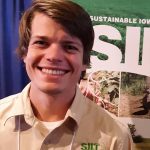
Joe is a farm specialist with the Sustainable Iowa Land Trust. A graduate of Iowa State University, Joe has a wide range of experiences related to conservation and farming. Joe consults with landowners about sustainable food production and how to permanently protect their farms.
Facilitating Farm Transition With the Sustainable Iowa Land Trust
Laura Krouse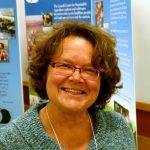
Laura operates Abbe Hills Farm on 72 acres near Mt. Vernon, in Linn County, Iowa, where she and her crew grow vegetables for a large CSA and a handful of other local markets. The farm is managed with crop rotation, cover crops, integrated pest management and pollinator habitat, and without the use of synthetic pesticides.
F2F: Laura Krouse and Margaret Smith
Jake Kundert
Jake is a farmer, PFI member and food systems director at Iowa Valley RC&D. He manages Grow: Johnson County, a 5-acre farm based in Iowa City, Iowa, that grows organic produce for hunger relief and farmer education. In 2019, Jake worked with the Xerces Society to establish 1,300 feet of beetle banks.
Making Space for Beneficial Insects on Farms
Adam Ledvina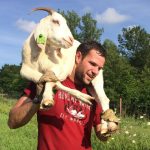
Adam started raising goats six years ago and has since started two businesses, Iowa Kiko Goats and Blue Collar Goatscaping. Adam also works for Red Earth Gardens, the Meskwaki Nation farm located in Tama, Iowa.
F2F: Bart VerEllen & Adam Ledvina
Matt LeRoux
Matt has nearly 20 years of experience serving farms through Cornell Cooperative Extension, non-profits and consulting. Specializing in market strategy, Matt works with a diverse mix of produce and livestock farmers, and food businesses. Career highlights include developing the Marketing Channel Assessment Tool for produce growers and the Cornell Meat Price & Yield Calculator.
Developing a Pasture-Raised, Iowa-Based Meat Company
William Lorentzen and Adrian White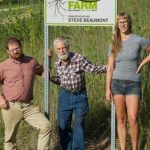
Will and Adrian co-own and operate Jupiter Ridge Farm near Garber, IA. As part of a 20-year lease with SILT, Will and Adrian rent their farm at a discounted rate while building equity in infrastructure and equipment. They grow 70+ crops, including shittake mushrooms.
Facilitating Farm Transition With the Sustainable Iowa Land Trust
Lyle Luzum
Lyle is a PFI member and landowner who donated his 170-acre heritage farm near Decorah, Iowa, to the Sustainable Iowa Land Trust in 2017 after investigating other options including sale, conservation easements and other nonprofits.
Facilitating Farm Transition With the Sustainable Iowa Land Trust
Ryan Marquardt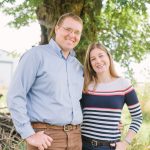
Ryan and his wife, Janice, own Wild Rose Pastures near Van Meter, Iowa. They have raised chicken, turkey, beef and eggs for central Iowa customers using sustainable practices since 2017.
Challenges to Processing Poultry in Iowa
Jacob Marty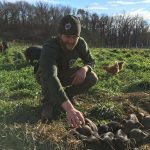
Jacob earned a degree in wildlife ecology from the University of Wisconsin-Stevens Point. In 2015, he returned to his family’s farm, Green Fire Farm, in southern Wisconsin where he now manages pastured beef cattle, hogs, hair sheep and poultry, and is experimenting with agroforestry plantings.
Diversifying Farms With Integrated Agroforestry
Ray McCormick
Ray is a fourth-generation farmer from Knox County, Indiana. Ray never tills, and he uses cover crops on his 2,200 acres of non-GMO corn and soybeans. He also manages 2,000 acres of wetlands and woodlands for conservation habitat.
Two for One: Cover Crop Seeding Equipment to Save Passes
Martha McFarland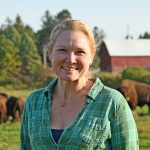
Martha farms with her father Dan in Fredericksburg, Iowa. They operate Hawkeye Buffalo Ranch on 250 acres of pasture and timber where bison and cattle graze. Martha gives educational tours to provide historical information about bison, the prairie and the history of their homesteading family who settled in Iowa over 150 years ago.
F2F: John Hogeland & Martha McFarland
Margaret McQuown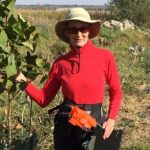
Maggie and her husband, Steve Turman, moved to the farm where she grew up near Red Oak, Iowa, in 2012. Since then, they have worked closely with their farm operators to incorporate conservation practices. Maggie and Steve were PFI’s 2018 Farmland Owner Legacy Award recipients.
Blue Morningsnow 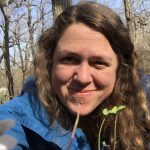
Blueberry, known as “Miss Blue” in her preschool teacher role, has been the director of Prairie Flower Children’s Center in Ames for four years; she is also a musician and a poet. Blue is passionate about outdoor nature-immersed education for children, and helping facilitate the relationship between children and the land.
Mapping our Special Places in Nature (ages 4-7)
Mapping our Special Places in Nature (ages 8 -11)
Danelle Myer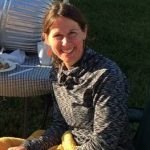
Danelle is the fifth generation to farm her family’s land near Logan, Iowa. At One Farm, Danelle raises vegetables for farmers markets, pop-up farm stands, online ordering, and restaurants and wholesale in Omaha and Des Moines. In November 2020, she opened a pop-up farm store in downtown Logan, population 1,400.
F2F: Danelle Myer and Jordan Scheibel
Lonna Nachtigal
Lonna has been growing food at Onion Creek Farms north of Ames, Iowa, with her husband, Joe Lynch, since 1998. Lonna is an artist, dancer and barn dance caller.
Sarah Nizzi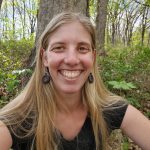
Sarah is a farm bill pollinator conservation planner and NRCS partner biologist with the Xerces Society. Sarah works across Iowa to offer technical assistance to landowners interested in pollinator habitat. She also provides pollinator-related training to NRCS staff and partners.
Making Space for Beneficial Insects on Farms
Matt O’Neal
Matt is a professor at Iowa State University whose goal is to develop pest management programs that are economically and environmentally sustainable. His lab explores how conservation practices and pesticide use impact the abundance and diversity of beneficial insects.
Neonicotinoid Seed Treatments: Agronomics and Environmental Impacts
Victor Oyervides
Victor has been with ISU Extension and Outreach for five years – initially as Latino community liaison and now as retail business specialist. He works to strengthen local retail economies with a primary focus on the linkages between food producers, processors and retailers.
Assess and Plan for Success: Uplifting Farm and Food Enterprises
Víctor ha estado con ISU Extension and Outreach durante cinco años, inicialmente como enlace con la comunidad latina y ahora como especialista en negocios minoristas. Trabaja para fortalecer las economías minoristas locales, con un enfoque principal en los vínculos entre los productores de alimentos, los procesadores y los minoristas de alimentos.
Evaluar y Planificar Para el Éxito: Mejorar las Empresas Agrícolas y Alimentarias
Michael Parker
Mike helps beginning farmers understand financial decisions as they work to access land. He has varied professional experiences in farm direct-marketing, including farmworker, food hub marketing associate, farmers market manager, caterer and writer.
Regan Peters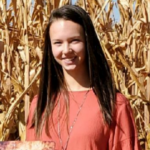
Regan is a junior at MMCRU High School in Marcus, Iowa. Regan’s beef cattle herd consists primarily of previous show heifers, and she works to select quality genetics for her calves. Along with show cattle, Regan feeds out performance steers. Aside from beef production, Regan also shows pigs and is extremely involved in her school and community.
Lead The Way: An Independent Farm Project Virtual Show-and-Tell (Ages 12-16)
Max Pitt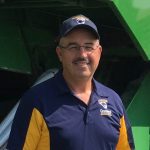
Max is associate professor of business at Graceland University’s C.H. Sandage School of Business. Max grew up on a family farm in the Loess Hills of western Iowa, and is focused on improving soil and water quality to improve profitability for farmers.
Two for One: Cover Crop Seeding Equipment to Save Passes
Clark Porter
Clark is a landowner and farm manager for Porter Family Farms in Iowa’s Grundy and Tama counties. Comprising a little over 570 acres, Clark’s farm is entirely no- or minimum-till, and Clark hires custom operators to work his farm. Clark also works as a watershed coordinator for the Iowa Department of Agriculture and Land Stewardship.
Donna Prizgintas
Donna lives in Ames, Iowa, and has a long history of creating delicious meals for celebrities, youth camps and sustainable and organic farm and food organizations. Her culinary career has always been farmer-centric, featuring cooking with seasonal, local products and celebrating farm-to-table eating.
Andrea Rasmussen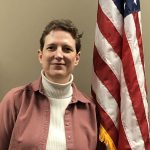
Andrea conducts compliance actions and outreach initiatives relating to the Fair Labor Standards Act, including child labor provisions; Migrant Seasonal Protection Act; H-2A Program; Child Labor, Family and Medical Leave Act; and more. She is an assistant district director for the Wage and Hour Division’s Des Moines District in Omaha, Nebraska.
Migrant and Seasonal Farmworkers: Worker Rights and Experiences
Carole Reichardt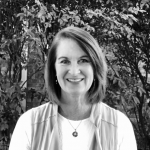
Carole is a landowner and farm manager from Clive, Iowa. Carole manages family farms in Cerro Gordo, Polk, Madison, Clark and Decatur counties in Iowa, as well as in Mercer County, Missouri. She has much experience working with farmland tenants to achieve goals and implement conservation.
Lois Reichert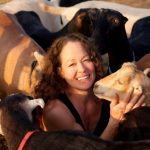
Lois is the former owner and operator of Reichert’s Dairy Air, a small-scale goat cheese operation in Knoxville, Iowa. For 11 years, Lois handcrafted small, daily batches of cheese and has received several national awards. Now retired, Lois continues to milk goats for pleasure.
F2F: Kevin Dietzel & Lois Reichert
Stacey Robles
Stacey is a foreign labor workforce advisor for the state of Iowa. She provides assistance to employers and their agents seeking foreign labor under H-2A agricultural visas and H-2B non-agricultural visas. She has a passion for serving the Latino community and advocating for marginalized communities.
Migrant and Seasonal Farmworkers: Worker Rights and Experiences
Michael Rozyne
Michael has been a marketer of small-farm products and a trailblazer in the Good Food Movement for more than three decades. He is co-founded Equal Exchange, the first U.S. fair trade coffee company; and in 1996, he started Red Tomato, a regional food system distributor and nonprofit. Michael is Red Tomato’s evangelist and head of new initiatives, and he speaks and writes widely on regional food systems, food narrative and the joys of fresh produce.
Reframing Food and Farming Narratives
Yichao Rui
Yichao is an environmental scientist at the Rodale Institute in Kutztown, Pennsylvania. His research focuses on biogeochemistry, soil health and microbial ecology under climate change and land use. He works with collaborators around the world to identify and promote management strategies to improve the sustainability and resilience of our environment.
Cover Crop-Based Organic No-Till Systems
Jordan Scheibel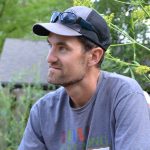
Jordan runs Middle Way Farm near Grinnell, Iowa, on the Lacina family farm, where he raises 2 acres of chemical-free vegetables sold primarily through CSA shares and online sales to Grinnell-area residents (population 9,300). Having built his farm reputation through the Grinnell farmers market, in 2020 he chose not to sell at farmers market due to COVID-19, and worked to transition his customers to farm-direct online ordering.
F2F: Danelle Myer and Jordan Scheibel
Dave Schmidt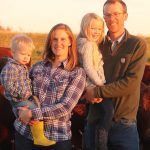
Dave and Meg Schmidt own Troublesome Creek Cattle Co near Exira. Their goal is to produce high-quality, wholesome meat by ensuring the well-being and long term health and productivity of their livestock while maintaining the most basic resources: soil, air and water.
Lucia Shulz
Lucia is a project assistant for the Farm and Community Program with the Center for Rural Affairs. Her work is centered around encouraging Latino farmers to network, educate and lead.
Lucia se desempeña como asistente de proyectos para el programa agrícola y comunitario en el Centro de Asuntos Rurales. Su trabajo se centra en alentar a los agricultores latinos a trabajar en red entre ellos, educar y liderar.
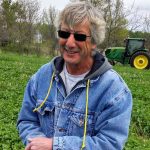 Dick Sloan
Dick Sloan
Dick and his wife, Diana, are lifetime PFI members who farm near Rowley, Iowa, growing corn, soybeans and winter small grains for cover crop seed. In 2014-2015, he and several other PFI member conducted on-farm research investigating whether neonic treatments for soybeans result in higher yields.
Neonicotinoid Seed Treatments: Agronomics and Environmental Impacts
Margaret Smith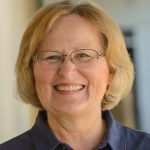
Margaret is a forage agronomist for Albert Lea Seed with previous experience working for ISU Extension and the ISU Department of Agronomy. She and her husband, Doug Alert, operate Ash Grove Farm, a diversified, certified organic crop and livestock operation near Hampton, in Franklin County, Iowa.
F2F: Laura Krouse and Margaret Smith
Zack Smith
Zack farms in Winnebago County, Iowa, where he has raised corn and soybeans using strip-till and cover crops since 2014. Recently, Zack and his business partner, Sheldon Stevermer, developed an innovative system they call “stock cropping” that combines livestock and row crops in the same field space. The system has potential to increase farm profitability and soil health, lessen a farm’s carbon footprint and expand economic opportunities for rural communities.
Stock Cropping: Raising Crops and Livestock Simultaneously in the Same Field
Julie Sweetland
Julie is a sociolinguist and senior advisor at the FrameWorks Institute, where she leads efforts to bring the organization’s cutting-edge, evidence-based reframing recommendations to issues throughout the nonprofit sector, including public health, childhood education and climate science.
Reframing Food and Farming Narratives
Lee Tesdell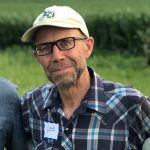
Lee owns Tesdell Century Farm near Slater, Iowa. Lee works with his farm tenants, Charles and Mike Helland, to address soil conservation, and habitat and water quality issues, by implementing both edge-of-field and in-field practices. Lee was PFI’s 2019 Farmland Owner Legacy Award recipient.
Kitt Tovar
Kitt is staff attorney at the Center for Agricultural Law and Taxation. She focuses on lease law, fence and property law, environmental and natural resource law, regulatory law and farm policy.
Land Ownership Legal Structures
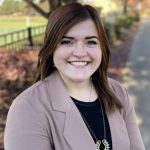 Mattie Tucker
Mattie Tucker
Mattie Tucker grew up in Remsen, Iowa, on an organic farm with her mother and brother. She recently graduated from Des Moines Area Community College with an associate’s degree in agribusiness and is currently studying agriculture education at Morningside College.
Lead The Way: An Independent Farm Project Virtual Show-and-Tell (Ages 12-16)
Virgil Tworek-Hofstetter
Virgil Tworek-Hofstetter and his wife, Mary, have farmed for 20 years with his father, Stanley, near Columbus, Nebraska. While teaching English as a Second Language classes he met Justino, one of his students. After a visit to Virgil’s farm, Justino and his family eagerly agreed the offer to lease and operate a portion of the farm.
Durante 20 años, Virgil Tworek-Hofstetter y su esposa, Mary, cultivaron con su padre Stanley cerca de Columbus, Nebraska. Mientras daba clases de inglés como segundo idioma, conoció a Justino como uno de sus alumnos. Después de una visita a la granja de Virgil, Justino y su familia aceptaron con entusiasmo la oferta de alquilar y operar una parte de la granja.
Berenice and Daisy Valderrabano

Berenice and Daisy have owned the taquería Mr. Burrito since December 2010. Berenice and Daisy, along with their parents, Nancy Valderrabano and her late husband, José Valderrabano, welcomed and garnered a loyal following of customers. They share the taquería experience through traditional family recipes rooted in the Puebla region of México.
Assess and Plan for Success: Uplifting Farm and Food Enterprises
Desde diciembre de 2010, la taquería Mr. Burrito ha recibido y ganado un seguimiento fiel de clientes. Las propietarias Berenice y Daisy junto con sus padres José y Nancy Valderrabano comparten la experiencia de la taquería a través de recetas familiares tradicionales arraigadas en la región de Puebla de México.”
Evaluar y Planificar Para el Éxito: Mejorar las Empresas Agrícolas y Alimentarias
Bart VerEllen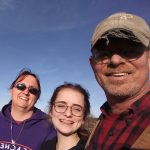
Bart raises sheep on 188 acres of rented farmland near Blakesburg, Iowa. As the operation hits its next stage of growth, Bart hopes to begin farming full-time and add stocker cattle for diversity. For now, Bart and his wife Trish live in Centerville, Iowa, and have off-farm jobs.
F2F: Bart VerEllen & Adam Ledvina
Michael Vittetoe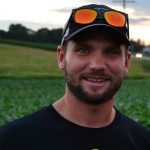
Michael farms near Washington, Iowa, growing corn, soybeans, hogs and cattle. The Vittetoes use no-till and cover crops, practice intensive rotational grazing and conduct on-farm trials to determine how they can best steward the land.
Relay-cropping Rye and Soybeans
John Wallace
John is an assistant professor and extension weed specialist for field and forage crops at Penn State University. His program focuses on developing cover crop-based integrated weed management strategies, best management practices for herbicide use in conservation tillage systems and weed management in reduced-tillage organic systems.
Interseeding Covers: Weed Management Considerations in Narrow- and Wide-Row Corn
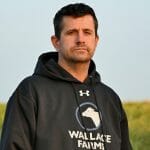 Nick Wallace
Nick Wallace
Nick Wallace is a farmer, entrepreneur and lifetime member of PFI with 15 years of experience in various forms of pasture-raised and grass-fed meat marketing. Nick owns and operates Wallace Farms near Keystone, Iowa, selling his own meat and other farmers’ meats over the internet.
Developing a Pasture-Raised, Iowa-Based Meat Company
Michelle Wander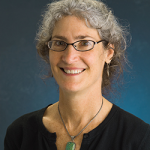
Michelle is a professor and soil scientist at the University of Illinois at Urbana-Champaign. She studies the influence of management (tillage, cover crops, crop rotation and more) on soils, and the valuation of standards and metrics for ecosystem services markets.
Carbon Markets: Exploring the Realities and Asking the Right Questions
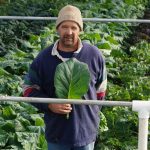 Bill Warner
Bill Warner
Bill operates Snug Haven Farm in Belleville, Wisconsin, with his wife, Judy Hageman. Together, they manage 13 hoophouses and are known for their “frost-sweetened spinach.” They focus resources on winter and spring crops and have recently added other greens and root crops to their winter growing season. Even in the spring and summer, most of their crops are harvested from their hoop houses.
Winter Production in the Hoop House
Tracy Whitehead
Tracy is the barn manager at JBG Organic Farm in Garfield, Texas. Tracy’s day-to-day duties have him at the intersection of managers and crews across multiple farm sites, and he thrives on working with different personalities and setting people on track to succeed. As a long-time manager at JBG, Tracy has been integral to building company culture and retaining skilled employees.
Employee Cultivation for Scaling Up a Vegetable Farm
Cristel Zoebisch
Cristel is a climate policy associate with the National Sustainable Agriculture Coalition in partnership with the Organic Farming Research Foundation. Cristel works on a range of climate and agriculture issues, including carbon markets and NSAC’s Climate Change and Agriculture campaign.
Carbon Markets: Exploring the Realities and Asking the Right Questions



